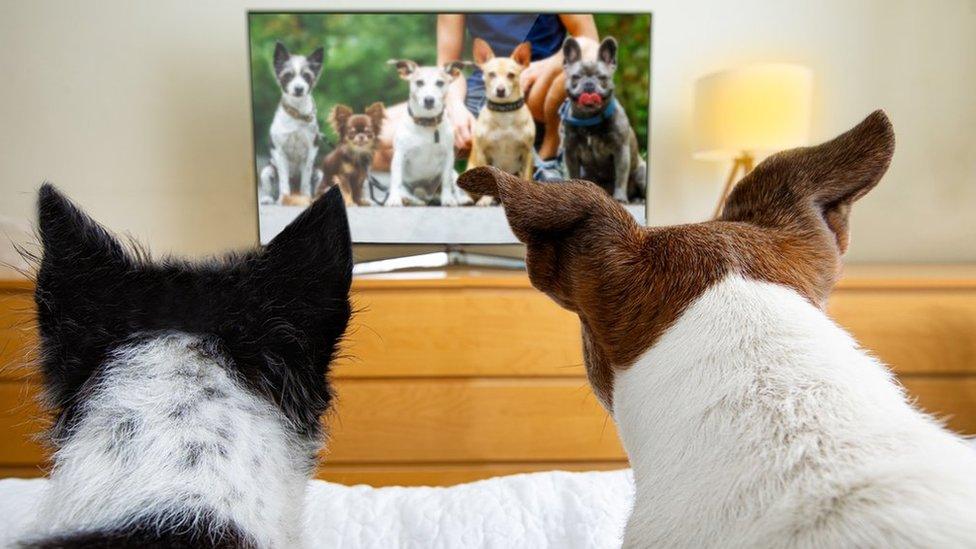What does YOUR dog enjoy watching on TV?
- Published
- comments

Paws the remote please Rover, Crufts is on!
"Woof, can we watch Paw Patrol please?!"
Have you ever wondered if your dog might enjoy watching TV, and what programmes they might like?
Well, a team of researchers from the University of Wisconsin-Madison's School of Veterinary Medicine has been researching just that, as a way to learn more about and help assess dogs' eyesight.
Freya Mowat - a vet who specialises in eyesight and a professor at the university - said: "We know that poor vision negatively impacts quality of life in older people, but the effect of aging and vision changes in dogs is largely unknown because we can't accurately assess it,"
So what did the results show? Well, it seems our furry friends prefer a nature documentary over a soap opera!
We want to know how your dog reacts when the TV is on? Does it chill out or get over-excited. Take part in our vote and let us know what kind of shows your dog likes and doesn't like in the comments below .
If you can't see this vote, click here.
The study, published in the Applied Animal Behaviour Science journal, was launched two years ago and aimed to learn what video content engaged pooches the most.
The researchers created a questionnaire for dog owners to fill out, looking at how their dog behaved when the TV was on.
In total, 1,600 dog owners from the US, Canada, Europe, the UK and Australasia responded to the study.
From looking at the results, they found that dogs seemed more interested in watching the TV when other animals, especially dogs, were on it, and were not as interested when other humans were on it.
Around 10% of the owners said their dogs were interested in watching cartoons, and sporting/herding dogs seemed to enjoy all types of TV content more than other breeds.
Owners also said that when they were engaged, their pets' behaviour was described as "active", and included running, jumping, and barking, compared with more chilled behaviours like lying down or sitting.
They also found that how old a dog was, and how good its vision was, also played a factor in how much they watched the TV.
The researchers next step is to build on these findings to see how videos can be used to help track a dog's vision and how it changes as they age, to help vets diagnose any sight issues earlier.
"Like people, dogs are living longer, and we want to make sure we support a healthier life for them as well." said Freya Mowat.
- Published1 August 2021
- Published10 January 2023
